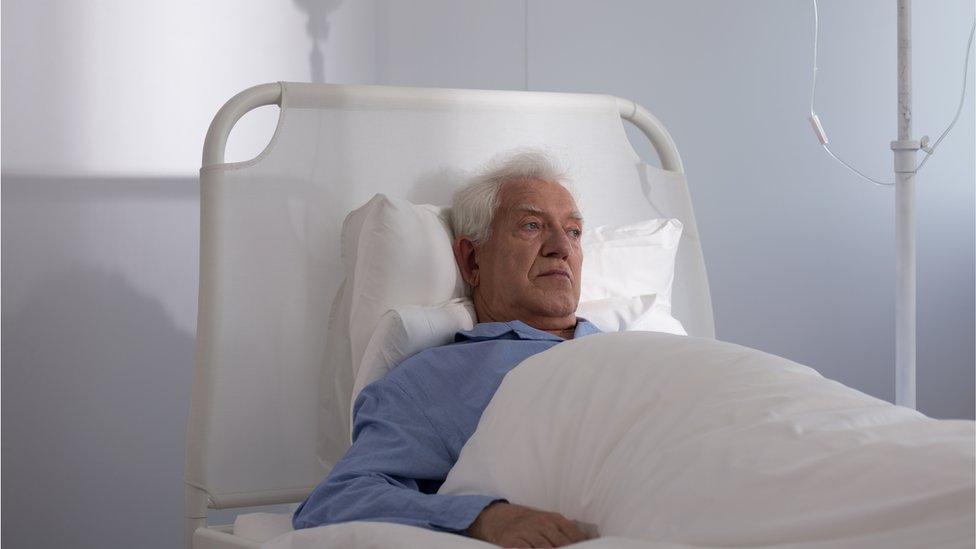Bed-blocking 'varies widely' across NHS
- Published

Older patients are said to be at risk of losing mobility during lengthy stays in hospital
More than one in 20 patients in some NHS hospitals are not being discharged quickly enough, according to new figures.
Wide variations between different NHS trusts were revealed in a report by the National Audit Office (NAO).
Oxford University Hospitals NHS Trust saw 12 days of "delayed transfer of care" for every 100 beds in 2015-16.
The Department of Health said the issue would be tackled as councils get £3.5bn more for adult care by 2020.
Bed-blocking occurs when a patient is deemed medically well enough to be released from hospital, but something else delays their discharge. One of the most common reasons is waiting for a nursing home place or home care.
The watchdog said in a report that delays were costing £820m a year and warned older people could lose mobility through extended stays.
Across England, the audit office found that for every 100 beds, three days of use were taken by patients who no longer needed to be in hospital between March 2015 and February 2016.
It represented a rise of almost one third on the same period two years earlier.
Analysis of figures showed 26 trusts where there were at least five days of delayed discharge for every 100 beds in 2015-16.
This was out of a total of 148 acute trusts surveyed.
Waiting for care
Auditors said there was a particular issue with older patients, those aged 65 and over.
It said: "For older people in particular, longer stays in hospital can lead to worse health outcomes and can increase their long-term care needs.
"Keeping older people in hospital longer than necessary is also an additional and avoidable pressure on the financial sustainability of NHS and local government."
The report said a 31% rise in delayed transfers since 2013 was down to the number of days older people were waiting for a package of home care or nursing home placement.
A Department of Health spokesman said: "Elderly patients should never be stuck in hospital unnecessarily and we are determined to make health and social care more integrated."
- Published26 May 2016
